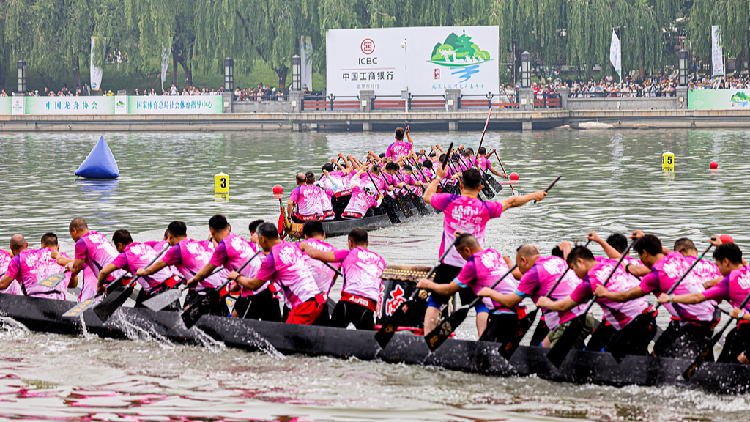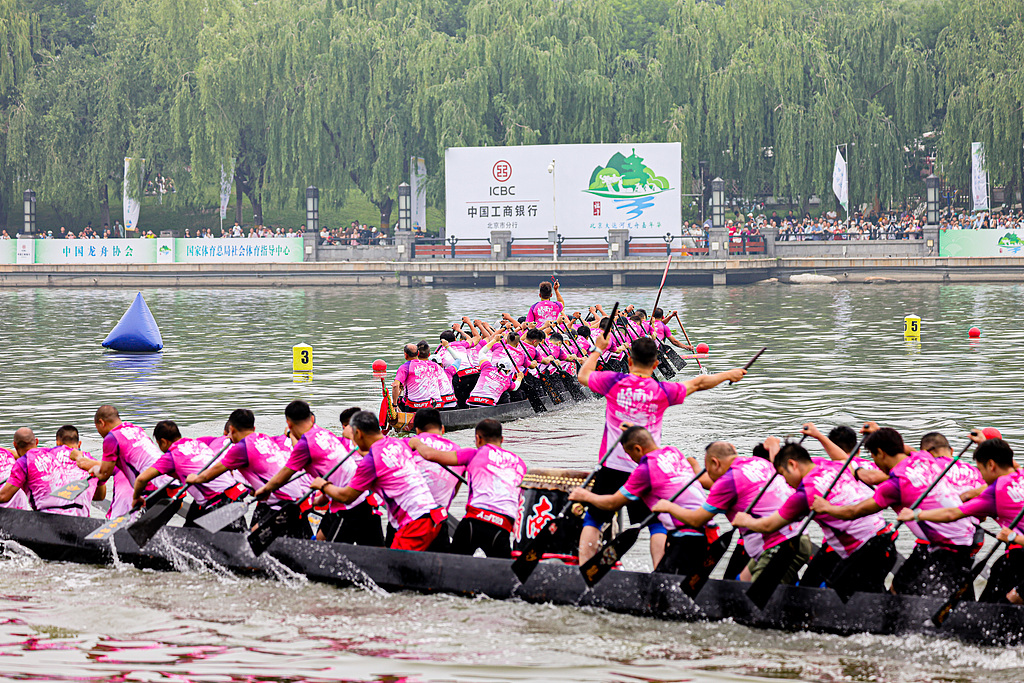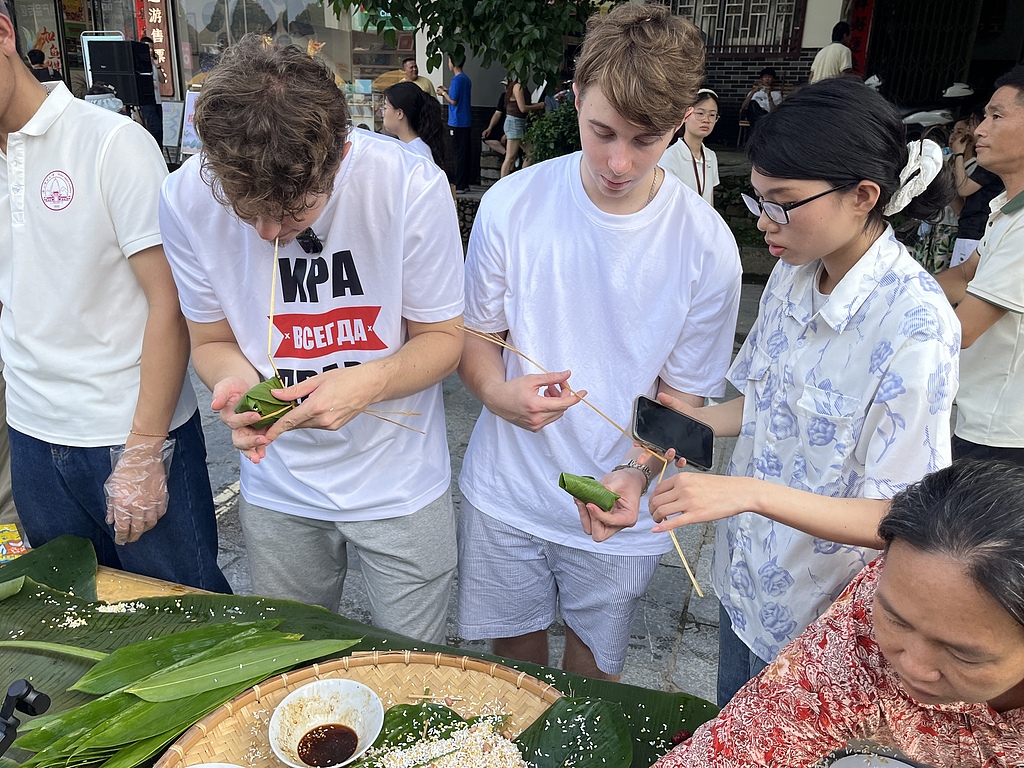Dragon Boat Festival Sparks Record-Breaking Holiday Spending in China
Dragon Boat Festival drives record 119 million trips and boosts China's tourism spending by 42.7 billion yuan, fueling economic growth


With 119 million domestic trips recorded and total domestic tourism spending reaching 42.7 billion yuan, the recently concluded three-day Dragon Boat Festival holiday has proven to be more than just a celebration of traditional Chinese culture — it has become a dynamic force boosting China's tourism and consumption sectors. Meanwhile, data from the National Immigration Administration showed that 5.9 million cross-border movements were processed during the holiday period, underlining both domestic and international enthusiasm for travel during this annual festivity.From drums to zongzi: A festival reimagined In Beijing's Tongzhou District, the 2025 Grand Canal Dragon Boat Carnival brought the festive spirit to life. Thirty-two teams from Beijing, Hebei, and Guangdong raced fiercely through the canal's waters, thrilling spectators with synchronized paddling and rhythmic drumbeats. The vibrant competition marked an energetic opening to the holiday, with cheering crowds lining the banks for a glimpse of tradition in motion. Notably, the Lingnan team from Guangdong wowed audiences with their dazzling dragon boat drifting skills—executing sharp turns and dramatic 360-degree spins that drew thunderous applause. Beyond the main races, unique contests such as dragon boat tug-of-war, paddleboard races, and arm-wrestling championships provided added excitement and opportunities for friendly rivalry. Online communities showcased the festival's lighter side, sharing jokes about regional differences. Northern dragon boat races, often ending with rowers tumbling into the water, contrasted with the south's fast-paced, precision events. These social media quips have become part of the festival's modern folklore, connecting young generations to ancient legends. According to tradition, the Dragon Boat Festival commemorates Qu Yuan, a patriotic poet from the Warring States period who drowned himself in protest. Locals took to boats in search of his body and tossed zongzi—sticky rice parcels—into the river to feed the fish and protect Qu Yuan.

Culinary creativity was on full display this year, especially in Chengdu's Jinniu District, where vendors offered not only classic pork and egg yolk zongzi but also adventurous new flavors like chocolate and pineapple. A massive family-sized zongzi—packed with slabs of pork belly and seven salted duck eggs, weighing up to 1.5 kilograms—became a crowd favorite, symbolizing sharing and togetherness. The global reach of the festival is expanding, too. Some zongzi producers are finding new markets abroad. One Zhejiang-based company teamed up with Chinese students at Oxford University for a "Dragon Boat Culture Day," livestreaming zongzi-making tutorials and exploring the festival’s rich heritage. Manager Shen Qian highlighted the emphasis on craftsmanship and food traceability, adding that their products now appear in supermarkets and online stores across Cambodia, Singapore, South Korea, and Canada, with particularly strong sales in South Korea. Tourism gets a cultural makeover Tourism received a significant boost from the festival's blend of tradition and modern leisure. Reports show that interest in cultural experiences such as dragon boat races and zongzi workshops soared by 105 percent over last year, reflecting a growing appetite for immersive and participatory travel. The festival's overlap with Children's Day further stimulated family travel. Parent-child excursions rose by nearly 20 percent, and bookings for theme parks more than doubled. Hotel packages and camping trips also saw record upticks, indicating a boom across multiple segments of the travel industry.

A clear shift is emerging in travelers’ expectations, away from passive sightseeing towards hands-on experiences. At Yuntai Mountain in Henan Province, visitors can now learn Tang Dynasty-era porcelain making with local artisans. These workshops help preserve intangible heritage while providing unique souvenirs and new income streams for rural communities. Adventure tourism offerings, such as paddle boarding, cliffside rail climbing, and jungle roller coasters, are also flourishing thanks to Yuntai Mountain's dramatic terrain. To encourage longer stays, the site has offered multi-day ticket validity since 2017. Local authorities have also invested in nearby homestays, transforming them into full-service rural getaways complete with fruit-picking, handicraft classes, and stargazing camps. The economic impact is significant. Anshang Town, the region’s main service hub, now generates more than 50 million yuan annually and sustains over 700 local jobs. The thriving homestay sector has pushed the township’s per capita rural income above 62,000 yuan a year, underscoring how the Dragon Boat Festival is not just a cultural event, but a powerful engine for regional development and prosperity.
Editor: Yang Xuemin




